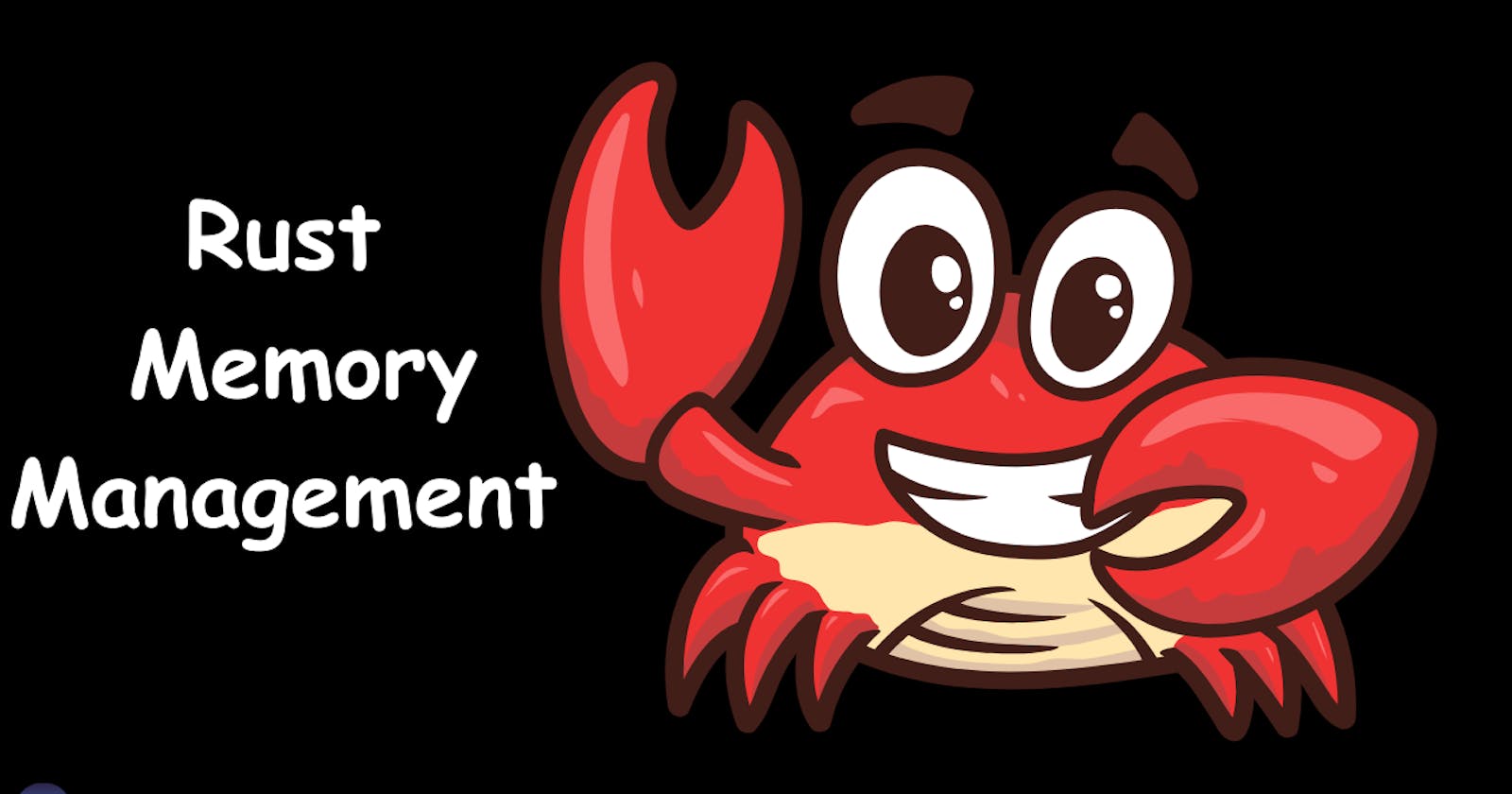As I embark on my journey into the world of Rust, one topic that continually piques my interest is memory management. While I may still be wearing my "Rust newbie" badge with pride, I've come to appreciate the unique way this language approaches managing RAM. If, like me, you're curious about diving deep into this subject, join me as we unravel the intricacies together.
Memory in Computers
Before diving into Rust's memory management, it's vital to understand how computer memory works. At its core, RAM (Random Access Memory) is where programs live when they're running. It's a temporary space, volatile in nature, where data is stored and accessed at lightning speeds.
The Rust Difference
Languages like Java or Python use garbage collectors to reclaim unused memory, while languages like C++ rely on the programmer to manually manage memory. Rust, however, takes a third path. It introduces an ownership system that guarantees memory safety, all without needing a garbage collector.
Stacks & Heaps
When your Rust program runs, it uses two primary memory sections:
Stack: Think of this as a neatly organized set of boxes. You can only add or remove a box from the top. It’s fast, and it automatically cleans up after itself. In Rust, local variables usually live here.
fn main() { let x = 5; // 'x' is allocated on the stack let y = 10; // 'y' is also on the stack let z = x + y; // 'z' is, you guessed it, on the stack too! println!("The sum is: {}", z); } // Here, z, y, and x are automatically deallocated from the stackHeap: Picture this as a vast warehouse. It’s for storing larger data or data with a size unknown at compile time. Managing this space requires more effort since we need to find the right spot to store our data and remember its location.
fn main() { let s = String::from("hello"); // Memory is allocated on the heap for the string println!("{}", s); } // Rust deallocates the heap memory automatically when 's' goes out of scope
Rust’s Secret Weapon: The Ownership System
The beauty of Rust's memory management lies in its ownership rules:
Ownership: Each value in Rust has a single owner, ensuring memory safety.
fn main() {
let s1 = String::from("hello");
let s2 = s1; // s1's value is moved to s2
// println!("{}", s1); // This would cause an error as s1 no longer owns the value
}
Borrowing: Instead of transferring ownership, Rust allows values to be borrowed, either mutably or immutably.
Immutable Borrowing
You can have multiple references to a value as long as they're all immutable. This means the value they're referring to can't be changed.
fn main() {
let s = String::from("hello");
let r1 = &s; // First reference
let r2 = &s; // Second reference
println!("r1: {}, r2: {}", r1, r2);
}
Mutable Borrowing
A mutable borrow allows you to change the value. However, you can have only one mutable reference to a particular piece of data in a particular scope. This restriction prevents data races, ensuring thread safety.
fn main() {
let mut s = String::from("hello");
let r1 = &mut s; // Mutable reference
// let r2 = &mut s; // This would cause an error, as you can't have two mutable references
r1.push_str(", world");
println!("r1: {}", r1);
}
A key rule in Rust is that you can't simultaneously have an immutable and a mutable reference. This ensures data consistency and safety.
fn main() {
let mut s = String::from("hello");
let r1 = &s; // Immutable reference
// let r2 = &mut s; // Error: can't have a mutable reference while we have an immutable one
println!("r1: {}", r1);
}
Lifetimes
These dictate how long a borrow lasts. Lifetimes ensure references don't outlive the data they refer to.
// The function 'longest' is defined with a lifetime named 'a.
// This means that the two string references it takes and the one it returns must all share the same lifetime.
fn longest<'a>(s1: &'a str, s2: &'a str) -> &'a str {
if s1.len() > s2.len() {
s1 // if s1 is longer, we return it
} else {
s2 // otherwise, we return s2
}
}
fn main() {
let s1 = String::from("short"); // s1 is created
let s2 = String::from("longer"); // s2 is created
// We pass references of s1 and s2 to the 'longest' function.
let result = longest(&s1, &s2);
println!("The longest string is {}", result);
} // Here, s2 and s1 are dropped, but our program remains safe.
Continuing the Learning Journey
Like you, I'm still navigating the vast sea of Rust.
As I wrap up, I'd love to point fellow learners in the direction of some resources I've found invaluable:
The Rust Book: An obvious but essential recommendation.
Rust by Example: For those who learn by doing.
Rustlings: Small exercises to get you used to reading and writing Rust code.
